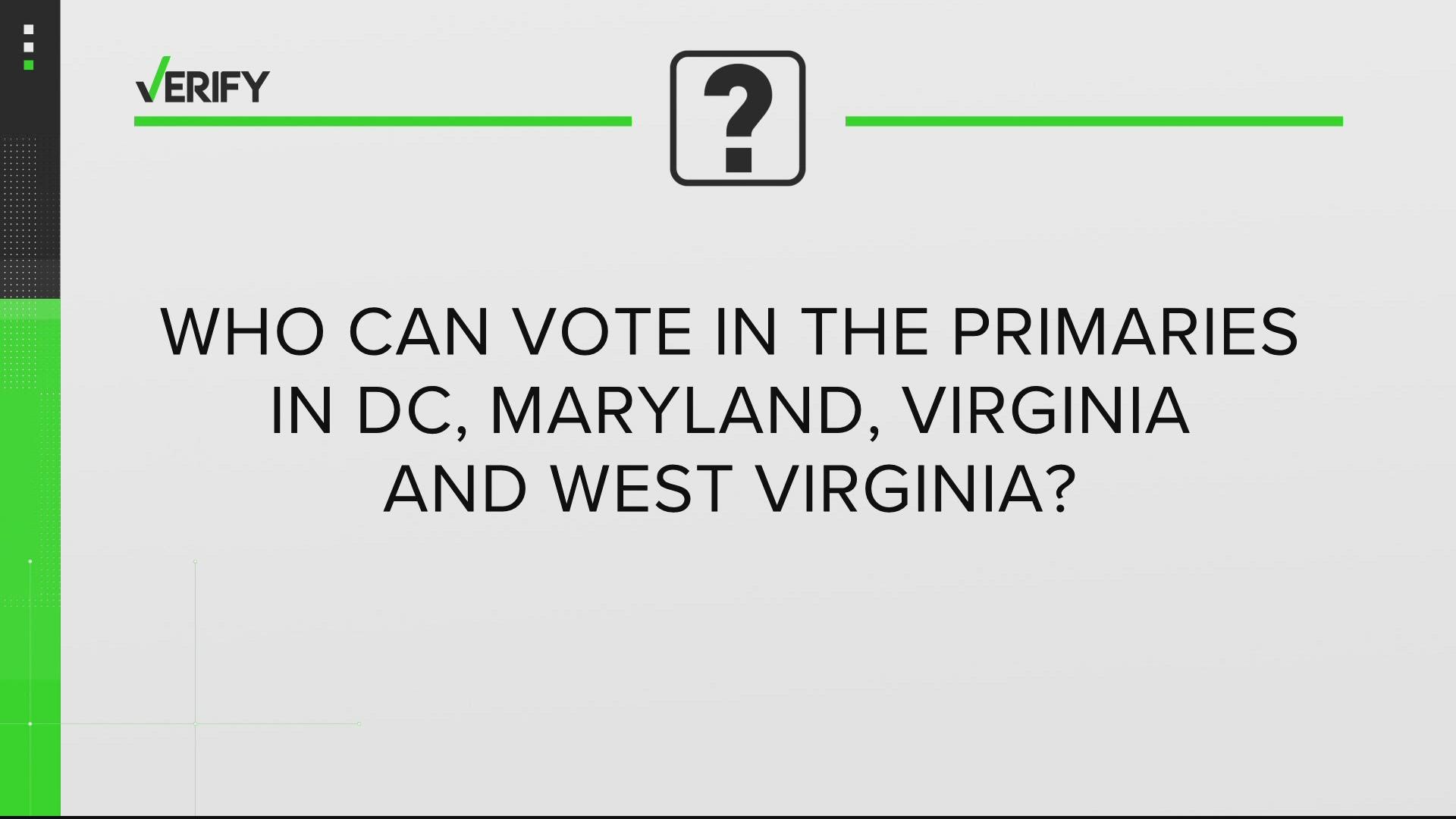WASHINGTON — The midterm primary elections are kicking off across the country.
Here are the primary days in our region:
But before you rush out to vote you need to know the rules, because each locality is different.
THE QUESTION:
Who can vote in the primaries in D.C., Maryland, Virginia and West Virginia?
THE SOURCES:
THE ANSWER:
Maryland and D.C. have closed primary elections, meaning you must be registered to that party to vote in partisan races.
Virginia has an open primary election, so all eligible voters can choose to vote in whichever primary.
West Virginia is a little different. If you are registered to a party you must vote in that party's election; however if you are unaffiliated you can choose, which election to vote in.
WHAT WE FOUND:
Maryland is a closed primary state. That means, for example, you have to be a Democrat to vote in the Democratic primary, and a Republican to vote in the Republican primary. There are some nonpartisan races, like for school board races, where all voters can cast a ballot. There are 831,254 unaffiliated voters registered in Maryland, according to the most recent data from April.
D.C. is also a closed primary state, however all voters can vote on initiatives and referendums. There are 80,064 voters registered as "no party" in D.C., according to recent D.C. Board of Elections data.
In Virginia, the Commonwealth has what’s called an "open primary." That means you can vote in any primary you want, but only one.
"In Virginia, a voter can vote in any primary they want, but they can only vote in one of the primaries (they cannot vote more than once)," Andrea Gaines, a spokesperson for the Virginia Department of Elections said. "Voters can choose to affiliate with whatever party they choose; Virginia voters do not register with a party in order to cast their ballots."
Last but not least, in West Virginia, they do something a little different.
If you are unaffiliated with a political party, you get to choose which party’s ballot you want; however, If you’re registered to a party, you get that ballot.
"Voters registered with one of the four recognized political parties in the state have to vote in that party's primary," Landon Palmer, a spokesperson for West Virginia's Secretary of State Mac Warner, said. "They do not have the option to choose a different ballot. Unaffiliated voters may choose any party ballot they would like, but must request one from the poll workers. A poll worker will give them a nonpartisan ballot unless a specific one is specifically requested."
A nonpartisan ballot includes things like nonpartisan races and ballot issues (i.e. board of education or constitutional amendments), a specialist from the West Virginia Secretary of State's Office explained.

